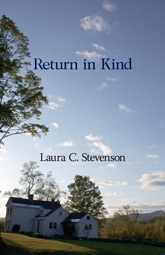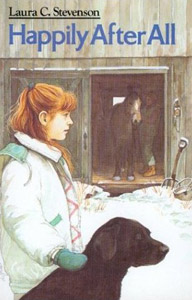A New Series: One Minute Reviews of
Books by Vermont Authors
Laura's column "One Minute Reviews" has appeared bi-weekly in Wilmington, Vermont's Deerfield Valley News since 2015. In April 2018, she found that no Vermont periodical consistently reviews all commercially published fiction and non-fiction by Vermont authors, so she started a series to fill that void. Published reviews from that series and some earlier reviews of local authors are listed with links to a scan of the printed copy. Reviews still in queue are listed without links until they appear in print.
The books reviewed in this series are available through Wilmington's Pettee Memorial Library, the Whitingham Free Public Library, and locally owned Bartleby's Books in Wilmington.
Deerfield Valley News, 8/29/2024
Tragedy in the Archives
Doris Kearns Goodwin, An Unfinished Love Story: A Personal History of the 1960s. Simon & Schuster, 2024
Doris Kearns Goodwin is best known for her distinguished biographies of American presidents; but An Unfinished Love Story is different from them in everything but its devotion to research and its readable story. As the subtitle says, it’s a personal study of the American 1960s, as experienced by Richard (“Dick”) Goodwin, Doris’s husband of 46 years, and to a lesser extent, by herself. The archives on which the study is based were contained in three hundred boxes of letters, speeches, and memorabilia that Dick kept from his years as a major speech writer for the Kennedy and Johnson administrations. Turning to these boxes after his 80th birthday, Dick asked Doris to join him in looking over these archives “to see what might come of it.” Dick died before a book came of it; but after a period of mourning, Doris went back to their “last adventure together,” completing Dick’s story and adding her experiences from the days she worked with Johnson on his memoirs after his retirement. The resulting book is a fascinating study of the great hopes, achievements and heartbreaks of the American 1960s, and (not incidentally) a portrait of the marriage of the two extraordinary people who are reflecting on their pasts.
The book proceeds chronologically, often with specific dates. We see Dick begin his career as a speech writer during Kennedy’s 1960 campaign, excited by the idea of the New Frontier. We watch him work with Shriver in the Peace Corps, and we see his passion for Civil Rights emerge in all Kennedy’s speeches on the subject. On a personal level, we watch him assist Jackie Kennedy orchestrate such “Camelot” events as the dinner for Nobel Prize Laureates in 1962; after Kennedy’s assassination, we see him procure the eternal flame that she wanted next to the President’s grave. We also see that being a Kennedy man implied despising Lyndon Johnson, who was in danger of being shouldered out of the 1964 vice presidency, in part by his arch nemesis, Bobby Kennedy.
And yet, after JFK’s assassination, Dick, unlike many other Kennedy men, did not disappear. He became Lyndon Johnson’s major speech writer, the man who gave America the phrase “Great Society,” and wrote speeches that, passed as bills, permanently changed American life. Voting Rights, Affirmative Action, Integration—the book’s quotations from Johnson’s speeches reveal a great partnership of President and writer. They hum with the belief that Government potentially has the power to fulfill America’s greatest promises of freedom.
But then came the Vietnam War’s escalation and the “credibility gap” that emerged as Johnson lied to the public. Disillusioned by eroding trust and the diversion of government attention from Great Society programs, in September of 1966, Dick became the first White House “insider” to condemn the war publicly. Johnson never forgave him. After one disastrous attempt at reconciliation over a speech, they never saw each other again. Dick actively supported McCarthy’s presidential run and then Bobby Kennedy’s, hoping to revive the idealism that had been so close to becoming reality.
Gradually, readers see why Dick Goodwin’s 300 boxes of archives remained unopened for fifty years: reading the letters and papers resurrects the pain of the tragedies that followed a promised Great Society—its hope undone by Johnson’s great failure, the assassination of Martin Luther King, race riots, the assassination of Bobby Kennedy, the collapse of Democratic dreams at the 1968 Democratic convention, and the presidency of Richard Nixon. This is a heart-wrenching read, filled with stories, reflections, and wisdom schooled by hope, loss, and love.


